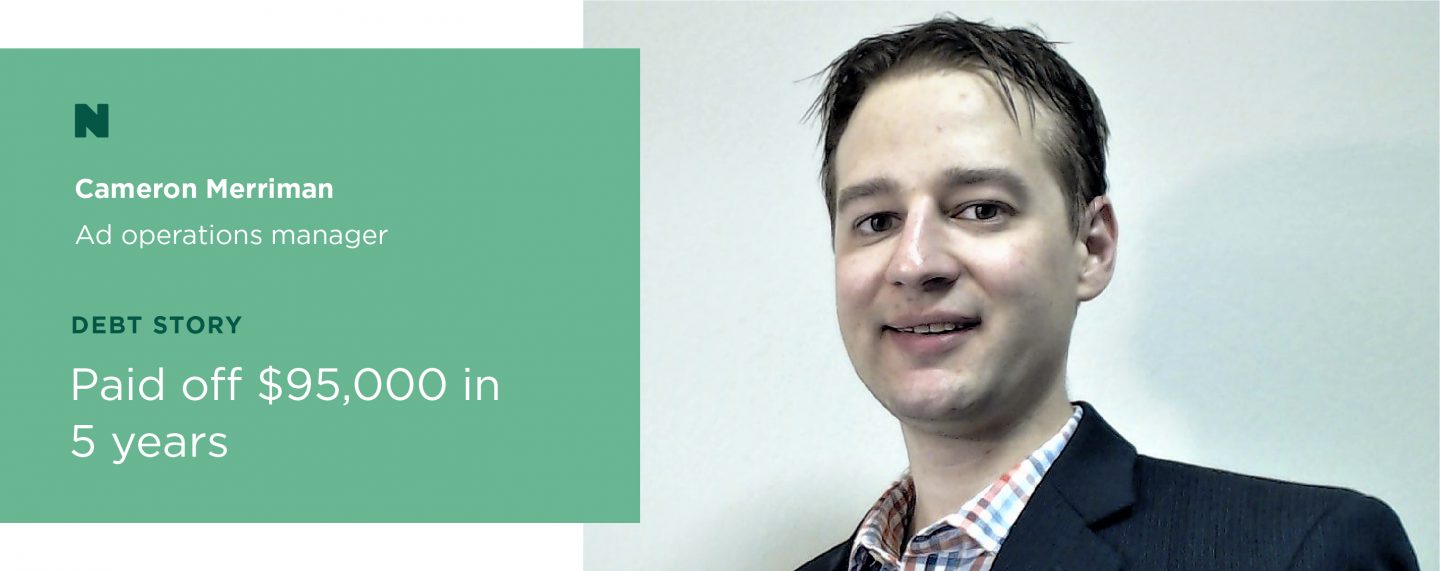
Getting out of debt is something you can do yourself with the right tools and motivation.
Take it from those who’ve been there. The people profiled in NerdWallet’s How I Ditched Debt series tackled thousands of dollars of debt using smart strategies and everyday tricks: making the most of your money, using extra payments and knowing how to stay motivated, among other strategies.
To inspire you, here are seven tips from some of their stories — and the steps you can take on your own debt payoff journey.
Make the most of every dollar
Do it yourself: Building a budget is key to any financial plan, but especially so when you’re paying off debt.
NerdWallet recommends the 50/30/20 budget: Keep essential expenses, like housing, to 50% of your income. Then allocate 30% for wants, and use 20% for savings and debt pay-down. Since you’re focused on paying off your debt, you may decide to use money from your wants category to make extra debt payments. That will wipe out debt faster and help you save on interest. You can always revise your budget as necessary.
Once you have your budget, track your progress. You can set yourself up for success by automating as much as possible. And consider using some or all of windfalls, like a tax refund or work bonus, to make a dent in debt balances.
Get inspired: Stephanie Stiavetti wanted to trade her tech job for a career in food and cooking, but $64,000 in student loan and credit card debt was holding her back.
Stiavetti’s plan involved putting almost every extra penny toward paying off debt. “I still went out with friends and enjoyed the occasional vacation, but I did so with an eye toward budget spending and found ways to make the most of every dollar instead of indulging in expensive luxuries,” she says.
Work some side hustles
Do it yourself: Consider any skills you have, such as web design or coding, that you can offer to earn extra cash. There are also side jobs you can pick up from home, like selling old clothes online or renting out a room on Airbnb.
If taking a second job sounds exhausting, make it a short-term stint to earn enough for a few extra payments toward debt. There are quite a few side hustles you can consider.
Get inspired: By age 23, Michelle Schroeder-Gardner had three college degrees, a new husband, a house in Missouri and $38,000 in student debt. She was determined to pay it off as quickly as possible.
Her strategy? Earn more. “Cutting your budget is great, but there’s only so much you can cut,” she says. “You can always try to make more money.”
In addition to her day job, Schroeder-Gardner ramped up several side hustles, including writing a blog, selling items from around her house, taking surveys and being a mystery shopper.
The long hours — up to 100 per week — were tough. But “just watching my debt go down kept me motivated, because I could see the end goal,” she says.
Align your spending and values
Do it yourself: Avoid falling into big-spender territory by heeding signs of overspending. If you find yourself falling behind on savings goals, buying items out of boredom and breaking your own spending rules, you might be overspending.
But you can break the cycle by building a good budget, analyzing your credit card statements and working to build new habits, like cooking at home instead of eating out.
Get inspired: Like many people trying to keep up an “appearance of having it all,” Lauren Greutman and her husband, Mark, bought an expensive home, drove luxury cars and spent freely. When Lauren found herself hiding $600 worth of new clothing from her spouse, she admitted the spending was out of control.
“I racked up $40,000 worth of debt behind my husband’s back and had so much shame,” she says.
In addition to downscaling their lifestyle, the Greutmans made a breakthrough when they assessed their spending in light of their values. Lauren’s advice: Make a list of everything you value in life and then list all your spending from last month. If the lists don’t match, get your spending in line with your values.
Use the power of extra payments
Do it yourself: Use the calculator on the debt payoff guide to see how extra payments can shorten your payoff time.
Making extra payments each month on your debt can also lower your credit utilization ratio, which in turn can improve your credit score.
Get inspired: No amount of debt is comfortable for Jackie Beck. When the amount she owed hit $147,000, including a mortgage, student and car loans, and credit cards, she became obsessed with paying it off — all of it.
She did so largely by making extra payments toward her bills. “I became consumed with paying off my student loan. I earned extra money — through online surveys, freelance writing and odd jobs from Craigslist — so I could make small additional payments,” she says. “I figured out how much faster I’d be done each time I sent in even a tiny payment.”
Rely on yourself
Do it yourself: Could a side business give you extra income to pay off debt? Think about your interests and how you might make a small business out of them. An animal lover could open a mobile grooming service, for instance, or a writer could pick up some freelance work.
Check out these side hustles you can start with no money.
Get inspired: After a divorce, Carrie Smith Nicholson faced $14,000 in car loan and credit card debt, an amount that triggered a resolve to alter her financial situation.
“I was on my own for the first time in my life and … could barely afford a decent apartment. There was no one around to help me out of this financial hole, so I knew I had to help myself,” she says.
Nicholson took a second job at a tax office, working nights and weekends, and lived on two-thirds of her income. “During tax season I worked seven days a week without any vacations or time off. It was tough, but I had a goal to be debt-free within a year,” she says.
Now debt-free, Nicholson continues to lean on herself, managing a blog that provides her main source of income.
Consider consolidation
Do it yourself: Learn about debt consolidation and whether it makes sense for you. You might be able to use a balance transfer credit card or a debt consolidation loan to roll multiple debts into one, ideally with a lower interest rate. Note that you’ll likely need a good credit score to qualify.
Get inspired: When David Weliver had to decide whether to pay his rent or his credit card bill in his 20s, he felt immense guilt. “After years of carrying obscene amounts of debt, it was the first time I couldn’t meet a payment obligation,” he says.
To tackle his $80,000 in student loan, car loan and credit card debt, Weliver set up a plan that included debt consolidation. His credit union gave him a low-rate loan for around $5,000. He was able to get another loan for $12,000, at a favorable interest rate, to pay off his highest-interest credit cards.
“I made the fixed personal loan payments, and whatever was left over I put toward the higher-rate APR cards, which I paid off before the lower-rate cards,” he says.
Eventually, the strategy paid off. “I was able to pay off all of my debt in a little over three years,” Weliver says, “and I’m very glad I got out of debt at the stage of life that I did.”
Know your ‘why’
Do it yourself: Think about your financial goals in the near and long term. Whether you’re looking for a new house or saving up for a vacation, having a clear motivation to get out of debt will help keep you on track.
Get inspired: Brian Brandow’s debt epiphany struck in 2010 when he told his family there would be no vacation that year. Instead, it was time to face $109,000 in debt, including five maxed-out credit cards.
The Brandows created a budget, cut expenses and used a debt management plan, eventually becoming debt-free after 50 months of repayment. Brandow’s three children provided the motivation he needed to stay focused on debt repayment.
“I didn’t want to disappoint my family,” he says. “I wanted to provide better for them.
“You’ll need to have a clear reason to want to get out of debt, because it’s going to be hard. It will take sacrifice. You must be mentally prepared. Having a ‘why’ will help keep you motivated.”



